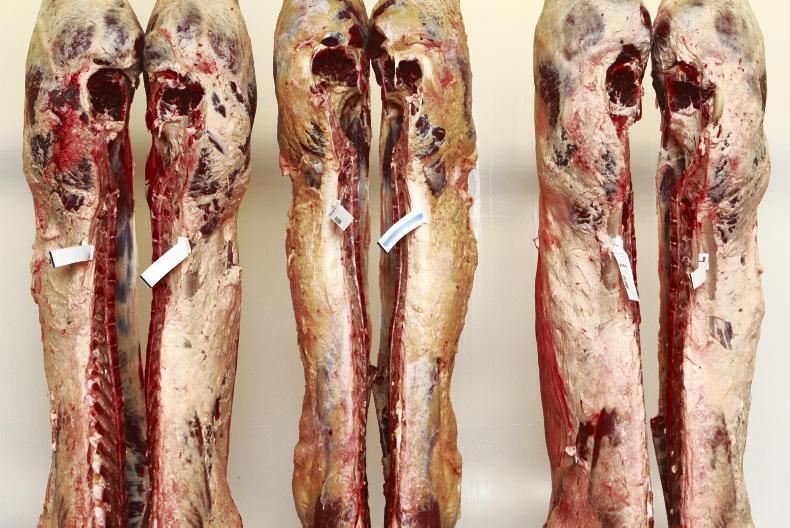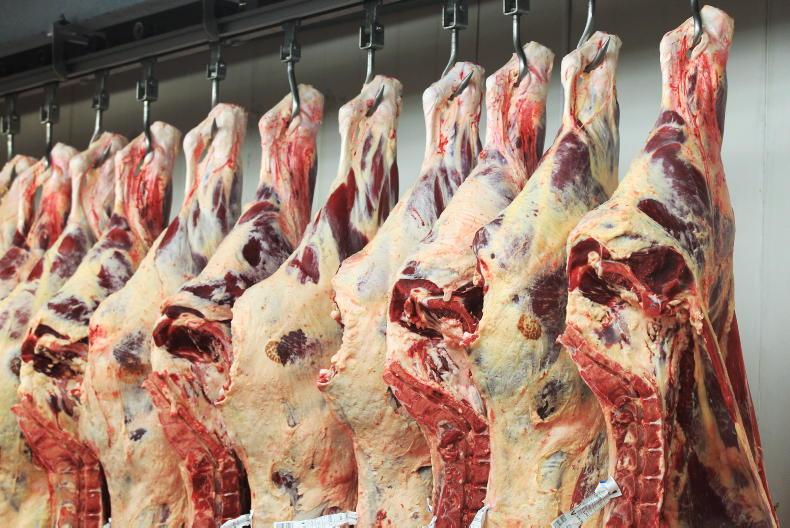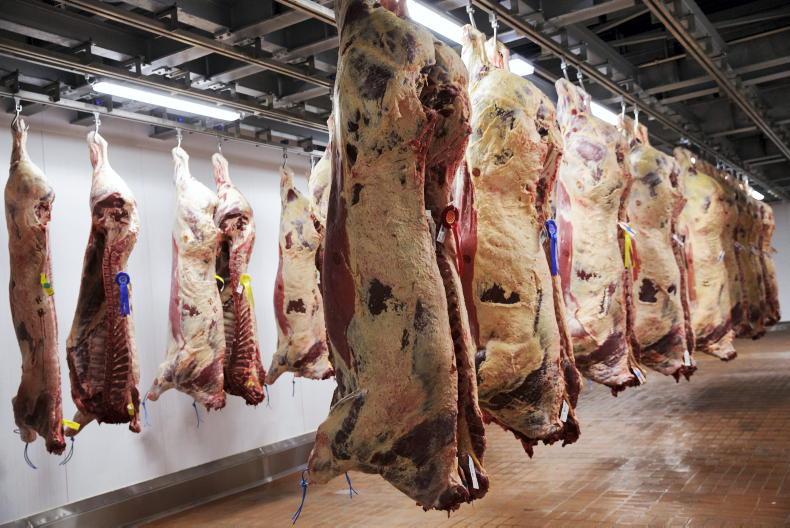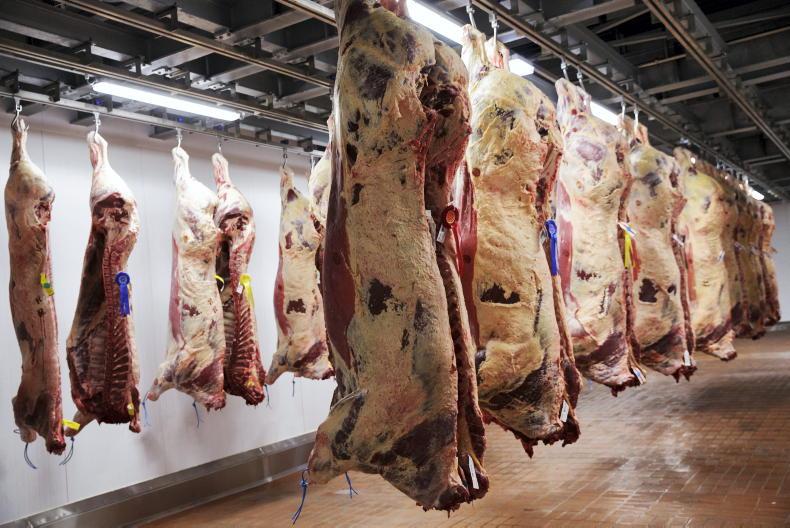The cow trade has seen the biggest increase this week, with factories hungry for cow supplies.
Over the past few weeks, all of the main factory players in the market have been very active in mart rings around the country hoovering up lorry loads of cows at sales for direct slaughter the following day.
With numbers of dry cows starting to dry up in marts, this has meant the cow price has had to increase to secure supplies.
Cow prices
P grading cows have moved to €3.15/kg in some factories, with more going if there are numbers of well-fleshed cows involved. That’s an improvement of 5c/kg on last week’s quotes.
O grading cows have also kicked on, with €3.25/kg to €3.30/kg being paid for good O grades.
R grades have also improved, with between €3.50/kg and €3.65/kg being paid for good-quality well-fleshed suckler-bred cows.
With factory agents poised and already looking at phones and tablets, it has also meant they are in the running for any slaughter-fit cattle.
Paying above factories
Factory agents are still paying well above what finished animals are worth in factories, with the equivalent of €4.40/kg beef price being paid for 600kg heifers in marts over the past week.
This would point to anyone with smaller numbers being better paid going to marts with finished cattle at the moment.
All factories have moved to paying €3.80/kg for bullocks, with €3.85/kg going to regular customers and those with numbers to kill. Heifers are generally moving at €3.85/kg, with some factories offering €3.90/kg to lure bigger numbers.
Haulage
Most factories have no issue with weights and are easier talked to around other in-spec criteria as well.
Haulage is being thrown in for some farmers as an added incentive to send cattle their way.
Prime cattle are in short supply and are currently in demand for a roaring retail trade both here and across the water.
Bulls are holding firm, with €3.80/kg to €3.85/kg being paid for R grading bulls, with €3.90/kg to €3.95/kg being paid for U grading bulls.
O grading black and white bulls are generally moving around €3.75/kg. Young bulls are being quoted at €3.75/kg to €3.80/kg on the grid before in-spec bonuses are paid.
Differential
The latest update from the beef market tracker from Bord Bia points to the 13c/kg differential remaining intact.
The Irish price has improved, but so too has the UK price, so the differential remains the same.
Across the water in Britain, prices continue to improve, with the latest market update from the AHDB putting R4L steers at £390.5p/kg (€4.82/kg incl VAT).
Speaking to some larger finishers across the water this week, in-spec Aberdeen Angus steers are currently being paid out at €5.06/kg incl VAT.
All categories of cattle have improved in price over the last seven to 10 days, with retail demand for Easter driving the trade.
Global markets
Moving further afield, over the weekend Phelim O'Neill reported on www.farmersjournal.ie that beef prices have improved in global markets.
In Brazil, the cattle kill has fallen for the first time in three years to 29.7m head, an 8.5% drop on 2019.
Despite this, there was a record volume of beef exported, reaching just over 2m tonnes carcase weight equivalent (CWE), twice as much as any other beef exporting country.
Export volumes are predicted to reach 2.1m tonnes CWE in 2021 by the USDA, though recent reports from Brazil suggest cattle numbers could be tight until 2022.
This has fed through to strong cattle prices of BRL19.93/kg, which is the equivalent of just under €3/kg.
Meat and Livestock Australia (MLA) reports that beef prices have levelled off in Australia close to the record high and are currently the equivalent of €4.56/kg for the MSA grading steer, weighing 300kg to 320kg.
Prices now appear to have peaked as Australia moves into autumn, but are expected to remain high as herd rebuilding continues.










SHARING OPTIONS